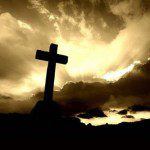by Crystal Lewis
R3 Contributor
First Posted at the Crystal St. Marie Lewis Blog
NPR published a great interview with Bart Ehrman– the well-known professor who has written a new book about the historical occurrences leading to the deification of Jesus in Christianity. Early in his talk with the reporter, Dr. Ehrman said something that is worth noting, particularly in a rapidly secularizing culture that continues to find itself at odds with religion.
When asked if a historian can comment on whether the resurrection truly happened, Ehrman explained that resurrections, virgin births and the like are theological matters. Questions about “truth” as it relates to these matters are for theologians to answer– and many of them have done so in great philosophical detail. However, for the historian, the question is not, “Is it true?” but rather, “Can we prove or document it?”
As Ehrman points out, the historian’s work requires him or her to collect and catalog documentation of an event’s occurrence, while a theologian can theoretically suspend the requirement for proof and instead permit faith and/or tradition to be enough. The historian’s burden of proof is why Ehrman must conclude that the resurrection and virgin birth were not historical events.
Reza Aslan tried to explain the historian’s responsibility to a befuddled (and even at times belligerent) Fox News interviewer last summer. He attempted to communicate that historians are expected to cite evidence for their claims, and that such evidence rarely points to the miraculous. However, in many cases, the theologian’s audience (if the theologian is beholden to a confessional academic institution or religious organization) may expect him or her to preserve the integrity of a certain faith position. The historian can freely conclude that Christianity’s virgin birth account was written to compete with other contemporary myths– but the theologian may feel religiously committed, or even professionally pressured, to conclude that the virgin birth was written in order to record that Jesus was literally a god.
Ehrman is saying (as my friend and colleague in the blogosphere once told me) that the starting point is what matters most. Those who start from a position of faith will likely stick close to their path, fearing that a step beyond its boundaries could bring about their own social, emotional or even professional peril. Those who start from a position of critical examination will explore freely, welcoming conclusions that may make some uncomfortable.
I listened to Ehrman’s interview today and wondered how often we really consider thestarting points of our conversation partners. Do we understand that History and Theology start from different positions? Do we fully understand that any fruitful conversation between these positions will require each party to communicate as people of differing language backgrounds might communicate? Do we understand our own starting points and the biases they present? How does this change our understanding of religious debates in the modern public sphere?
The Ehrman interview is interesting for a variety of reasons, but I found this tidbit about what I’ve termed our “starting points” most thought-provoking. I encourage you to listen to the NPR recording. I plan to buy the book when it’s released. I’m sure there will be plenty more to write about while reading it.
Follow Crystal on twitter @crystallewis















